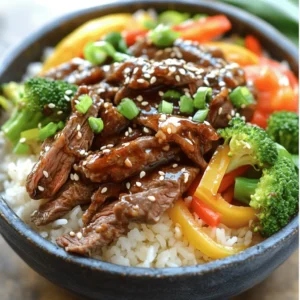
Korean BBQ Beef Bowls Better Than Takeout
Savor the flavors of Korea with these delicious Korean BBQ Beef Bowls! Made with tender flank steak and vibrant vegetables, this easy recipe comes together in under 45 minutes. Marinated in a savory sauce, the beef pairs perfectly with fluffy rice and a sprinkle of sesame seeds. Perfect for weeknight dinners or meal prep! Click through to explore the full recipe and bring a taste of Korean cuisine to your table tonight!